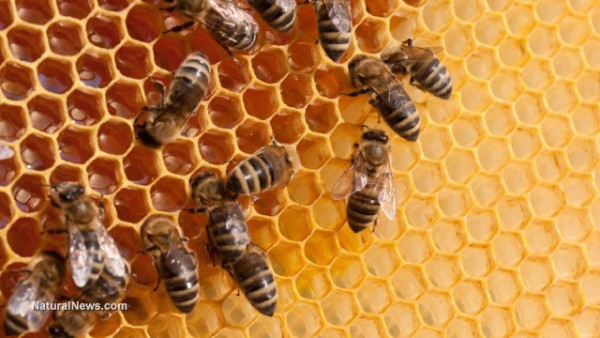California’s biggest bee heist solved: Central Valley man caught, thousands of beehives recovered
05/26/2017 / By Frances Bloomfield

Last April 28, Pavel Tveretinov was arrested at a Fresno County orchard for allegedly possessing stolen property. The 51-year old Russian-Ukrainian is believed to be the man behind California’s largest case of bee thievery, wherein hundreds of beehives disappeared from a Sutter County nursery. At the time of his arrest, authorities stated that Tveretinov was tending to over 100 beehives at his home. Following this, investigators discovered even more beehives at two separate locations in Fresno County. So far, more than 2,500 beehives have been found, the total sum of which has been valued at $875,000.
Investigators pegged Tveretinov as the suspected bee thief back in March. A Missouri-based beekeeper was being shown around Tveretinov’s nursery when the man noticed some beekeeping equipment with identifiers that belonged to his friends. Furthermore, the beekeeper saw other types of equipment that made the nursery look more like a “chop shop for beehives.” The beekeeper then used FaceTime to contact those same friends, a couple who offered pollination and other bee-related services. The couple took a plane to Fresno County after they were notified. Following the theft report, authorities were then able to apprehend Tveretinov. However, he has since been released on a $10,000 bail.
Tveretinov was believed to have committed the thefts over the course of three years and across six California counties. The stolen beehives were being rented out to growers so the bees could pollinate their crops. Almond growers, in particular, avail of the services of bees for crops that can amount to billions of pounds. Detective Andre Solis, of the Fresno County Sheriff’s office, told NBCNews.com that a beekeeper can earn up to $180,000 in a single season, minus the expenses. (Related: What honey bees really do for us)
Montana-based beekeeper Lloyd Cunniff was one the victims of Tveretinov’s illicit activities. The owner of Beeline Honey Co. lost 488 beehives to Tveretinov after he had the colonies shipped from his home in Choteau, Mont. to a property in Northern California. The beehives contained enough bees to pollinate over 244 acres of almond trees, and Cunniff has placed his losses at more than $400,000. The bees had been moved to Northern California so that Cunniff could use the state’s almond pollinating season to make additional money while it was still winter, just before the honey harvest season in July. Although Cunniff was able to recover most of his equipment — which had been spray-painted with someone else’s name — and some of his bees, they have since been quarantined so the bees can be treated for mites and other diseases.
According to the LATimes.com, Tveretinov kept Cunniff’s bees alongside bees of other breeds. Cunniff told the publication that this was a problem, as interbreeding could lead to a host of problems that range from poor health to aggressiveness. He has described it as “a nightmare”, and when asked about the state of his recovered bees, he answered: “Some of it looks kind of good. Most of it is not that good.”
On returning to California for pollinating season, Cunniff said that he hasn’t ruled it out just yet, even if he has “to start over from scratch.” The Montana native has expressed concern over the safety of his bees and worries that they could be taken again. “This theft ring is a big operation,” Cunniff stated. “They are just beginning to scratch the surface.”
In the meantime, authorities have warned beekeepers to be more vigilant with their bees.
Visit HomeGardeningNews.com to read up on similar stories.
Sources include:
Tagged Under: bees, California, honey bees



















